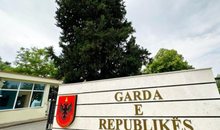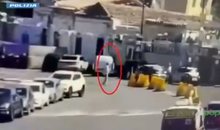
 Flash News
Flash News
The race for the head of the BKH, the deadline for applications ends today
He injured the married couple in Rrogozhina, here is who the perpetrator is
He injured his neighbors with a gun, the perpetrator surrendered to the police
The prosecution sends 5 Kosovar citizens to trial for drug smuggling
21-year-old injured with knife in Saranda
Analysis: Peace between Russia and Ukraine, further away than it seemed
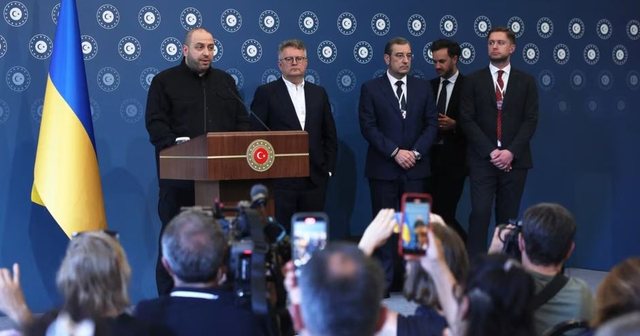
Even before Ukrainian and Russian negotiators met in the conference room of Istanbul’s famous Ciragan Palace on June 2, there was little optimism about major progress toward peace. After just about an hour of talks, it was clear that even this expectation was overly optimistic. The next day, former Russian President Dmitry Medvedev confirmed this.
"The Istanbul talks are not about reaching a compromise peace on someone else's illusory terms, but about ensuring our swift victory and the complete destruction of the neo-Nazi regime ," Medvedev, who is now a senior official on Russia's Security Council, wrote on Telegram.
The second round of negotiations to end Europe's biggest land war since World War II ended with fewer results than the first round. The initial talks last month marked the first face-off between Kiev and Moscow since the first weeks after Russia launched its full-scale invasion of Ukraine in February 2022. Ukraine sent a group of high-level officials; Russia sent a delegation led by former Culture Minister Vladimir Medinsky. The fact that they agreed to exchange up to 1,000 prisoners of war was seen as a success.
Ahead of the June 2 talks, the two sides were expected to exchange their specific proposals for a framework for a peace agreement. Ukraine, which said it had conveyed its plan to the Kremlin in advance, demanded, among other things, a 30-day unconditional ceasefire, the exchange of all prisoners of war, and the return of Ukrainian children who, according to Kiev, have been abducted by Russia.
As before, Ukraine sent its Defense Minister, Rustem Umerov, to the talks. Russia refused to share its plan in advance - which was seen as a bad sign. The leadership of the Russian delegation, once again by Medinsky, was also seen as a dark omen.
"It would be a mistake to expect any immediate progress in the negotiations between Russia and Ukraine in Istanbul ," Kremlin spokesman Dmitry Peskov said on June 3.
When the Russian document was finally published by the state-run TASS news agency, it confirmed observers' worst fears about Moscow's conditions for peace. The Russian proposal calls, among other things, for international recognition of Crimea - the Ukrainian peninsula that Moscow annexed in 2014 - as well as four Ukrainian regions that are partially occupied by Russian forces.
Russian and Ukrainian positions in peace talks
Russia and Ukraine have announced their plans for a ceasefire agreement and peace talks, but their positions on key issues remain far apart.
Ceasefire: Ukraine is demanding a complete and unconditional ceasefire on land, sea and air for at least 30 days - with the possibility of extension - as a precondition for peace talks. Russia is proposing a ceasefire only after its conditions are met, such as the complete withdrawal of Ukrainian forces from territories it claims to have annexed, or a ban on their movement except in the event of their departure from those territories.
Territorial concessions: Ukraine wants territorial issues to be discussed only after a full ceasefire and does not accept international recognition of Russia's territorial gains since 2014. Russia demands international recognition of its control over Crimea and the Luhansk, Donetsk, Zaporizhia, and Kherson regions, as well as the withdrawal of Ukrainian forces from these areas.
Ukrainian military forces: Ukraine does not accept limits on the size or armament of its army. Russia demands limits on the size of the Ukrainian army, the quantity and types of weapons, and the disbandment of “nationalist” units.
Security guarantees and neutrality: Ukraine should receive strong security guarantees and not be forced to be neutral; it could seek membership in the EU and NATO. Russia wants Ukraine to be neutral and not join any alliance or coalition.
The text even refers to the regions collectively as “Novorossiya” — or “New Russia” — a historical term used during the Russian Empire to describe lands that are now Ukrainian. The Russian text calls on Ukraine to withdraw its troops from territories claimed by Russia within 30 days of the ceasefire.
He also demands that Ukraine renounce NATO membership, demobilize its armed forces, and halve foreign military aid.
"Talking about the meaning of this memorandum would only matter if we believed that the Russian delegation, as a whole, has some sincere intention regarding these negotiations... that it too will end this war," Kirill Martynov, editor-in-chief of the Russian exile newspaper Novaya Gazeta Europa, tells Radio Free Europe's Current Time channel.
"But everything we have seen so far is related to the fact that the Russian side is convinced that it is winning the war, that it just needs to wait a little longer...", according to him.
On the battlefield, Russia is ramping up its operations, with a full-scale offensive expected soon. Russia is in the lead, with more soldiers and more weapons at its disposal, and its forces are advancing in several places. Ukrainian officials have warned that the northeastern region of Sumy could be a priority in any future offensive.
Kiev also sent a clear message on the eve of the talks, launching a surprise drone attack on several Russian air bases, where dozens of strategic bombers were stationed, used for missile strikes on Ukraine. Although Ukraine has been praised for its creativity, especially in drone warfare, it continues to struggle to provide enough soldiers to the front lines.
The White House Wild Card
Another unpredictable factor is the White House. President Donald Trump has expressed impatience with the pace of negotiations and has threatened to withdraw the United States from the process altogether. But Trump and his advisers have also expressed disappointment with Russian President Vladimir Putin, who is trying to normalize relations with the United States after a decade of friction.
After a phone call with Putin this week, Trump said he warned him that Russia would retaliate after Ukrainian drone strikes inside Russian territory. Trump's Republican allies in the Senate, with Democratic support, are pushing legislation that would impose major new sanctions on Moscow.
US officials have said that this initiative is being developed in tacit coordination with the White House, although Republican Senator Lindsey Graham and Democrat Richard Blumenthal openly expressed their positions during a tour of Europe - which included a stop in Ukraine - last week.
"What I learned on this trip was that he is preparing for more war," Graham said, referring to Putin, in an interview with the Associated Press news agency.
Blumenthal described the sanctions proposed in the legislation as "devastating" and said they would put Russia's economy "on a trade island."
"It is a critical moment for Putin and for the world, because Russia is launching a new offensive," he said./REL
Latest news

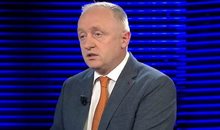
Anthropology
2025-06-06 17:06:00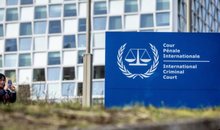
EU supports International Criminal Court after US sanctions
2025-06-06 16:47:51
Gonxhe ignores concerns about Spaçi and defends the continuation of the works
2025-06-06 16:31:42
Providing online services, report: Institutions, delays in update requests
2025-06-06 16:24:10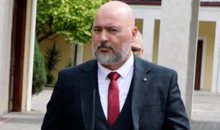
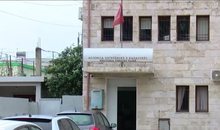
The head of the Vlora Cadastre is changed again
2025-06-06 15:58:49
With a rounded belly, Dafina Zeqiri enjoys the holidays with her partner
2025-06-06 15:36:06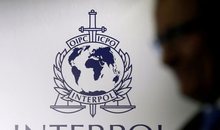

Foods that should not be missing from the Eid al-Adha table
2025-06-06 15:04:48
They exploited girls for prostitution in Vlora, 28-year-old arrested
2025-06-06 14:44:26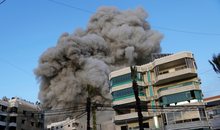
Israel warns of more attacks in Lebanon
2025-06-06 14:26:30
The race for the head of the BKH, the deadline for applications ends today
2025-06-06 14:15:18
14-year-old girl in Vlora rescued after risking drowning at sea
2025-06-06 14:04:23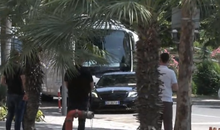
Challenge with Albania, Serbian team arrives in Tirana
2025-06-06 13:49:04
He injured the married couple in Rrogozhina, here is who the perpetrator is
2025-06-06 13:34:20
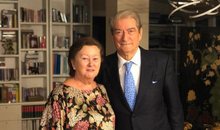
Berisha wishes Eid al-Adha: Blessings to your families and our nation
2025-06-06 13:09:28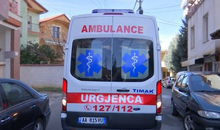
He injured his neighbors with a gun, the perpetrator surrendered to the police
2025-06-06 13:02:47

Tom Cruise enters Guinness World Records
2025-06-06 12:38:48
From orange peels to bananas, discover the foods that help you with stress
2025-06-06 12:28:53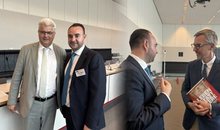

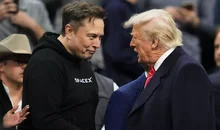
How did the feud between Donald Trump and Elon Musk start?
2025-06-06 11:52:32
The prosecution sends 5 Kosovar citizens to trial for drug smuggling
2025-06-06 11:33:56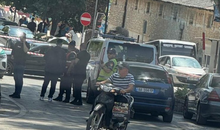
21-year-old injured with knife in Saranda
2025-06-06 11:24:10
Kosovo citizens flock to the Albanian coast, long queue from Morina
2025-06-06 11:11:07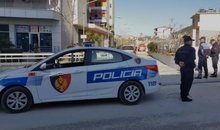
Gunfire in Kavaja, shot at a married couple
2025-06-06 11:05:01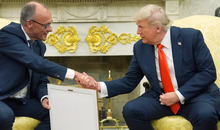
Merz: Bashkëpunim i ngushtë Gjermani-SHBA
2025-06-06 10:45:35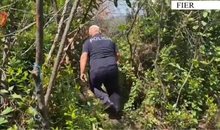
A marijuana plantation is found in Cakran, a 24-year-old man is arrested
2025-06-06 10:25:53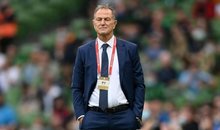
Gianni De Biasi shows the formula for how we can win against Serbia
2025-06-06 10:08:57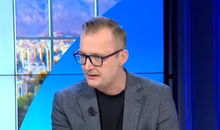
Hoxha: The CEC was one of the main architects of the destruction of free voting
2025-06-06 09:52:16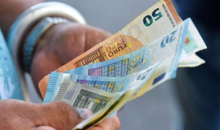
Foreign exchange, June 6, 2025
2025-06-06 09:33:01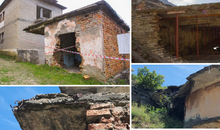


Accident on the new Kukes bridge, three vehicles collide
2025-06-06 08:43:06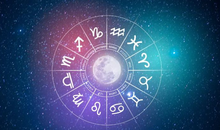
Horoscope, what do the stars have in store for you today?
2025-06-06 08:28:14
Clear weather with few clouds, the forecast for this Friday
2025-06-06 08:13:54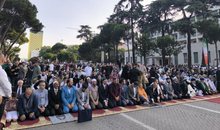

Morning Post/ In 2 lines: What mattered yesterday in Albania
2025-06-06 07:46:29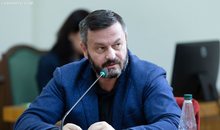
In trial for tender abuse, socialist MP targets ILD
2025-06-05 22:37:09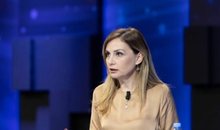
Tabaku: The left in Albania has shown with facts that it is against integration
2025-06-05 22:09:44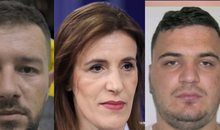
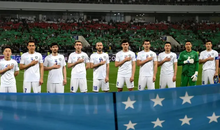
Uzbekistan qualifies for the World Cup for the first time
2025-06-05 21:14:35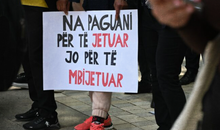
Index: Albania among countries that consistently violate workers' rights
2025-06-05 20:53:35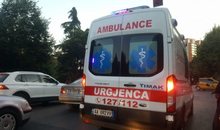
Accident in Burrel, two vehicles collide, 6 injured
2025-06-05 20:31:27
Discover foods that help you relieve stress
2025-06-05 20:16:34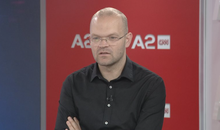
Kalaja: I have a video where votes were taken from the DP and given to the PS
2025-06-05 19:58:04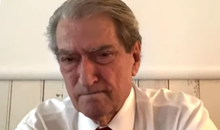
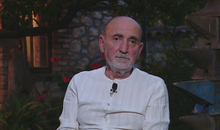
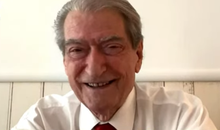
Berisha: The international community does not accept the farce
2025-06-05 18:57:18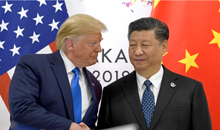
Trump after conversation with Xi: US and China will resume trade talks
2025-06-05 18:35:36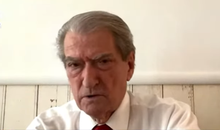
Berisha on May 11: 28 MPs were under the patronage of drug cartels
2025-06-05 18:15:44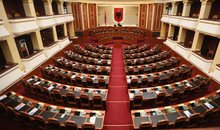
The session in the Assembly closes, the majority approves the draft laws alone
2025-06-05 17:55:21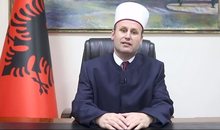
Kurban Bajrami, kreu i Komunitetit Mysliman të Shqipërisë uron besimtarët
2025-06-05 17:29:17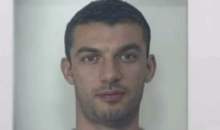
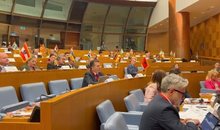
Media at OSCE conference: Organized crime has captured the Albanian state
2025-06-05 16:50:41
Car hits 75-year-old man at white lines in Vlora
2025-06-05 16:42:48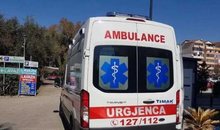

Protest in Spaç, after restoration interventions
2025-06-05 16:27:49
Photo/ Concrete mixer falls into abyss in Ulëz, driver rushed to hospital
2025-06-05 16:15:15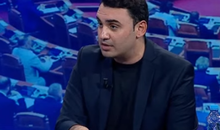
May 11/ Këlliçi: There are attempts to influence the final OSCE-ODIHR report
2025-06-05 16:06:38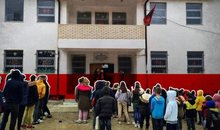
Immigration is emptying schools and universities
2025-06-05 15:53:38
Plague breaks out, Kosovo bans import of sheep and goats from Shkodra and Kukësi
2025-06-05 15:48:23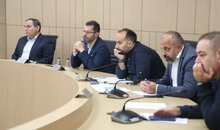
After Tirana, KAS also decides to open the ballot boxes in Dibër
2025-06-05 15:31:03
Tirana is "paralyzed" again, here are the roads that will be blocked tomorrow
2025-06-05 15:20:12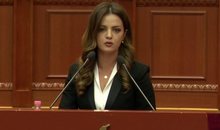
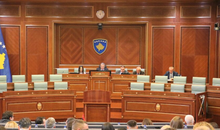
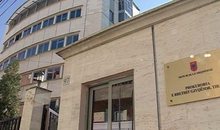
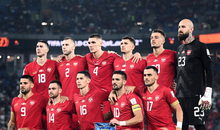
Serbia is coming to Albania tomorrow, here's where it will be accommodated
2025-06-05 14:24:43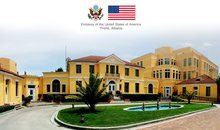
US Embassy updates visa appointment system: More flexibility for applicants
2025-06-05 14:21:01
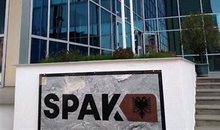
Drug trafficking with "tentacles" in Europe, GJKKO seals prison for 9 arrested
2025-06-05 13:39:35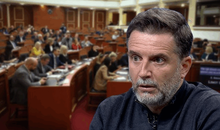
Deserting from the socialist ranks, Erion Braçe "becomes" a Democrat
2025-06-05 13:23:49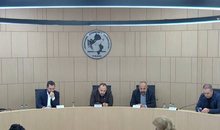
May 11 elections, KAS decides on a full recount of votes in Tirana
2025-06-05 13:22:28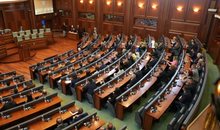
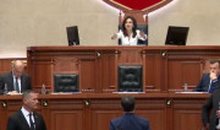
Clashes in the Parliament/ Elisa Spiropali expels Flamur Noka from the session
2025-06-05 13:04:42
A Girl, Otherwise, A Boy
2025-06-05 12:57:30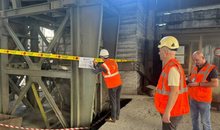
Accident at the "Albchrome" factory in Elbasan, three people arrested
2025-06-05 12:54:40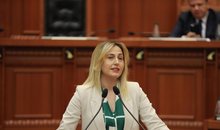
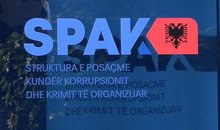
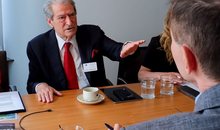
Berisha: The law of farce is that the dictator's votes are always increasing
2025-06-05 12:19:16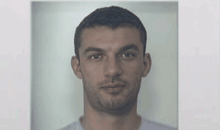

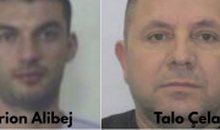
The murder saga, Alibej: It started after I gave Talo Çela's location
2025-06-05 11:45:27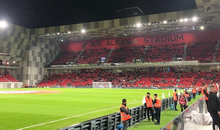
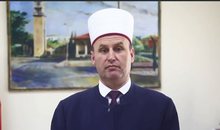
Muslims celebrate Eid al-Adha, KMSH announces where prayers will be held
2025-06-05 11:24:50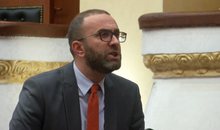
Bardhi: The EU delegation said that crime controlled the elections in Elbasan!
2025-06-05 11:16:51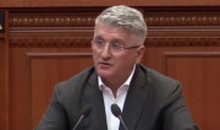
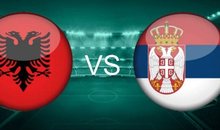
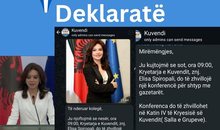
Journalists were censored by Spiropali, AGSH: Fraud and institutional propaganda
2025-06-05 11:00:20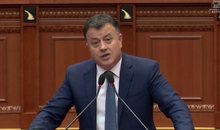
Noka-majority: The foundations of your power rest on the bought vote
2025-06-05 10:54:00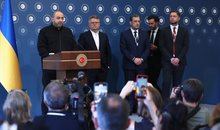
Analysis: Peace between Russia and Ukraine, further away than it seemed
2025-06-05 10:51:57

Serious in Austria/ 35-year-old Albanian dies at work
2025-06-05 10:21:00

They produced and sold cannabis, 2 brothers arrested
2025-06-05 09:50:30
